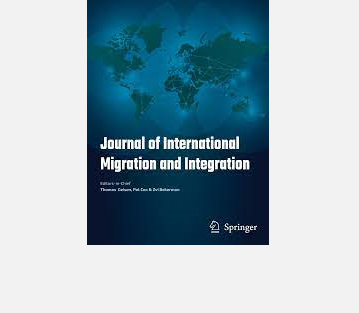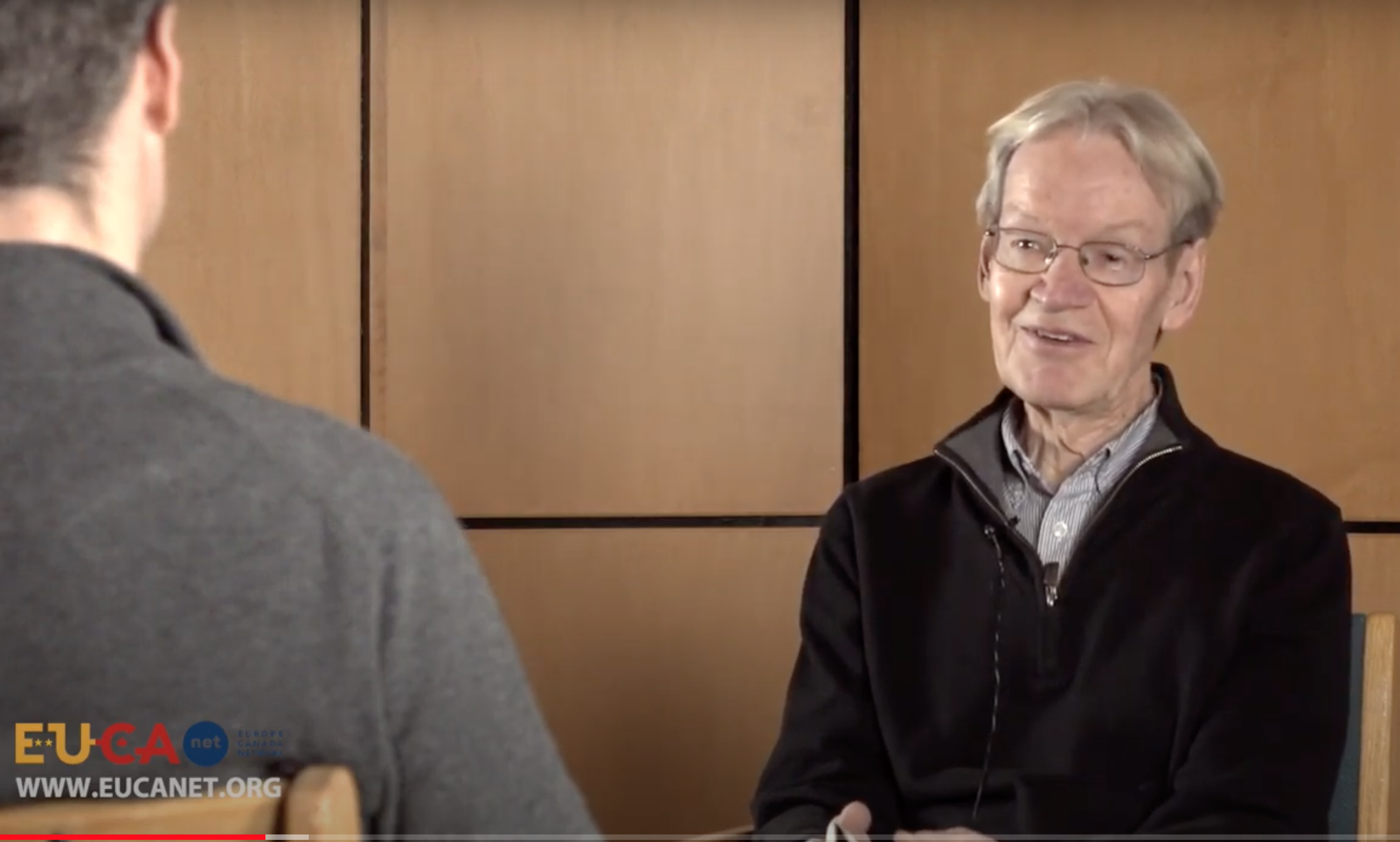Institutional Reform in the European Union, by Svetlin Dimitriev
By Svetlin Dimitriev, student at the University of Victoria
With the shattering of the status quo in the European Parliament (EP) elections a few months back, the European Union (EU) might now be at the precipice of real and substantial change. In a time in which the public seems engaged with EU activities, be it because of Brexit, immigration, or the environment, the EU now seems to be experiencing a change in its political climate. It is no longer met only by a growing resistance, but now also by a surge in support. This support needs to be harnessed, grown, and cultivated. This new fledgling public enthusiasm might be the EU’s only chance to recover from all the problems and crises it has had to endure over the last decade. If the EU is to learn from its mistakes and past experiences, it must adapt. The only way to adapt is to change via institutional reform. If the EU is to survive in the coming decades it must alter its power structure. The target of these reforms, should be none other than the controversial behemoth of the EU institutions – the European Commission.
Reform can be made in numerous ways, but most importantly, any reform must address the root of the problem. The most frequently made criticism of the Commission is that it is bureaucratic and technocratic. These points are then used to make an argument that it is therefore illegitimate. There is certainly substance to this argument, especially when taking into consideration the Commission’s composition and its glaring lack of democratic representation. However, although undemocratic, there is value and a place for the Commission’s technocratic structure in a system as complicated as the EU’s. It gives officials, experts, the means to create and implement efficient and effective policy. The success of technocracy can be evidenced by the sheer volume of work that has gone towards EU integration over the last few decades. The Commission’s actions and decisions most certainly warrant scrutiny, but the problem with the Commission as an institution is not that it is technocratic and bureaucratic. The problem with the Commission is that it wields a tremendous amount of power on top of already being a technocratic, bureaucratic, and undemocratic institution. The Commission’s character is not what needs to be changed. What needs to be changed is the scope of the Commission’s powers. The Commission should lessen its involvement in legislation in favour of transforming into a fully fledged and operational executive body of the EU, one which can then successfully meet the needs and desires of EU citizens.
In its current state, the Commission takes on far too many tasks and responsibilities. Legislation is a perfect example. The Commission, the executive body of the EU, is the one directly responsible for proposing legislation. Having the right of initiative grants the Commission a near monopoly of power in matters concerning legislation. Although pending approval of the EP and Council, the Commission nonetheless still technically proposes the very policies that it might later have to implement and enforce. This has created a serious imbalance of power between EU institutions. By retaining the right of initiative, the Commission is actively sapping power away from the only institution which gives the EU some sort of democratic legitimacy – the EP. The Commission not only holds a disproportionate amount of power by legislating as an executive actor, but it then also hurts democracy at the EU level by hindering the efforts of the EP. As a direct result, this could then be responsible for discouraging the public from engaging in EU politics by giving citizens a very legitimate reason not to, thus further hurting democracy at the EU level.
An obvious solution which might address this problem would be to grant the EP the right of initiative instead. This would not be considered a radical idea. Just recently during the EP elections, parties and EU officials alike brought up and even campaigned on the idea of institutional reform. Their proposal – exactly the same – take away the Commission’s right of initiative and grant it to the EP. This would certainly remedy the imbalance of power between EU institutions. It would empower democracy at the EU level and perhaps encourage more public participation. Although initially a loss from the perspective of the Commission, granting the EP the right of initiative could yield substantial long-term benefits for the EU as a whole.
The solution to give the EP the right of initiative, however, would only resolve half of the problem. In such a scenario, although the Commission would still retain a rather large scope of powers, the Commission would nonetheless remain a tremendously flawed institution. This is due to the fact that it would still fail to fulfill its role as an executive actor. When it comes to the Commission and its ability to enforce laws, there is a tremendous gap between reality and expectation. As the Commission primarily operates through the use of normative soft power, it actually has very few tools at its disposal when it comes to truly enforcing policy at the EU and national level. Although in force at the legal level, it has not been uncommon to see EU regulations and standards ignored or delayed simply because the Commission does not have the means to ensure member state compliance. The success of oversight can be debated, while fining non-compliant member states does little when it comes to actually moving the EU forward. The Commission needs more mechanisms of enforcing rule of law, standards, regulations, democracy, etc.
Granting the Commission more power might sound radical; however, that is what it would take to integrate the union and close the gap between Northern and Southern Europe, and Western and Eastern Europe. All member states would benefit from a Commission more capable of combating corruption and safeguarding democracy. For example, citizens of post-communist states in particular could benefit tremendously from a Commission which can effectively keep their national government in check. As corruption remains an endemic problem for post-communist states, it has been made abundantly clear that general EU oversight and that citizens’ efforts to try and combat these issues are simply not enough. More ought to be done, and having a reliable extra buffer of accountability at the EU level might be what these countries need to have a real chance to catch up to the rest of the EU. The alternative would be to leave these countries improving at a snail’s pace and perpetually trapped in a vicious cycle of corruption induced poverty. The benefits of a Commission with empowered executive capacities would go far beyond combating corruption in post-communist states. It would also have a much greater capacity to ensure the provision of human rights, compliance to environmental regulations to aid the fight against climate change, protection of minorities against discrimination, and much more.
The outcome of the last EP elections present the EU with the opportunity for real change, change through institutional reform. Confidence in the EU is by no means high, but the status quo has definitely changed. The EU needs to make use of this opportunity while it still can. The Commission ought to lose its right of initiative for the benefit of the EU as a whole. As the EU needs to be made more democratic and accountable to EU citizens such that it does not disintegrate, the EP must be empowered and transformed into a fully functional legislative assembly which holds the right of initiative. This is vital as more citizens need to be encouraged to participate in the EU political process. Furthermore, the Commission would need to divert its efforts and expand its executive abilities such that it is able to serve the EU to the benefit of its citizens, but in a different way than it ever has before. The Commission has never been a democratic institution and it probably never will be. But what the Commission could do, is focus its efforts and powers on safeguarding and strengthening democracy elsewhere – at national level of the member states. If granted the ability to successfully do so, it could do even more to serve the interests of EU citizens. The opportunity to make a number of positive changes in the EU has finally arisen. It is only a matter of time before it is made clear what the EU will do with it.











Leave a Reply
Want to join the discussion?Feel free to contribute!